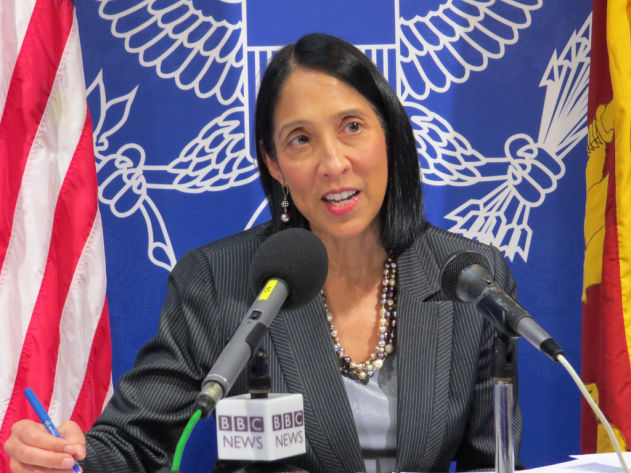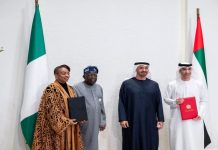During the UN Security Council Open Debate on Peace Consolidation in West Africa Conference yesterday, themed “Piracy and Armed Robbery at Sea in the Gulf of Guinea” Amb. Michele Sison, U.S. Deputy Representative to the UN, made it known that Nigeria is losing about 1.5 billion dollars every month to piracy, smuggling, fraud etc.
She said that earlier this month on April 11 at 7.56 p.m., pirates attacked a cargo vessel off the coast of Nigeria and kidnapped six crew members including the vessel’s captain.
“The captain and crew sounded the alarm and hid in a protected space on the ship only to discover when they emerged the following day that two of their crew were missing. A second officer from the Philippines and an electrician from Egypt; both are still missing. This was neither the first pirate attack of the year, nor even the first attack that day. Earlier on April 11, the very same day, pirates had attacked a Turkish cargo ship off the coast of Nigeria, kidnapping six of the crew, including the vessel’s captain. Those men are also still missing” she said
“Piracy and armed robbery in the Gulf of Guinea are increasing at an alarming rate, with some industry experts recording at least 32 attacks off the coast of Nigeria alone in 2016, affecting many Member States, including the U.S. The economic consequences for the people of the region are devastating. According to a Chatham House report, as much as 400,000 barrels of crude oil are stolen each day in the Gulf of Guinea.
“We have spoken many times in this chamber about the root causes of piracy, ineffective governance structures, weak rule of law, precarious legal frameworks and inadequate naval coast guard and maritime law enforcement.”
“The absence of an effective maritime governance system in particular hampers freedom of movement in the region, disrupts trade and economic growth, and facilitates environmental crimes.
“We have also acknowledged in our resolutions and in the presidential statement adopted this morning that the solution to these root causes lies in the greater African stewardship of maritime safety and security at the continental, regional, and Member State level.
She said that with the absence of African ownership and action from national and local governments to tackle maritime security challenges, there was little reason to believe that attacks in the Gulf of Guinea would decline.
Sison urged the Member States of the regional and sub-regional organisations to make the Inter-regional Coordination Centre fully operational.
“We encourage states in the region to further enhance security by establishing pilot maritime Zone ‘E’ covering the coasts of Nigeria, Niger, Benin, and Togo, an area where the majority of attacks occur,” she added.
She said that the establishment of the Zone, would provide the means for an integrated approach to coordinating joint patrols, naval drills, training programs, and intelligence sharing among the naval forces of countries in the zone.
On responding to acts of maritime crime, she said, the U.S. trains, equips, and conducts exercises and operations with African maritime forces through its African Partnership Station.
To enhance maritime security and governance, she added that the U.S. is assisting with strengthening the judicial sectors of Gulf of Guinea nations and regional capacity to address impunity for piracy and related maritime crime.












